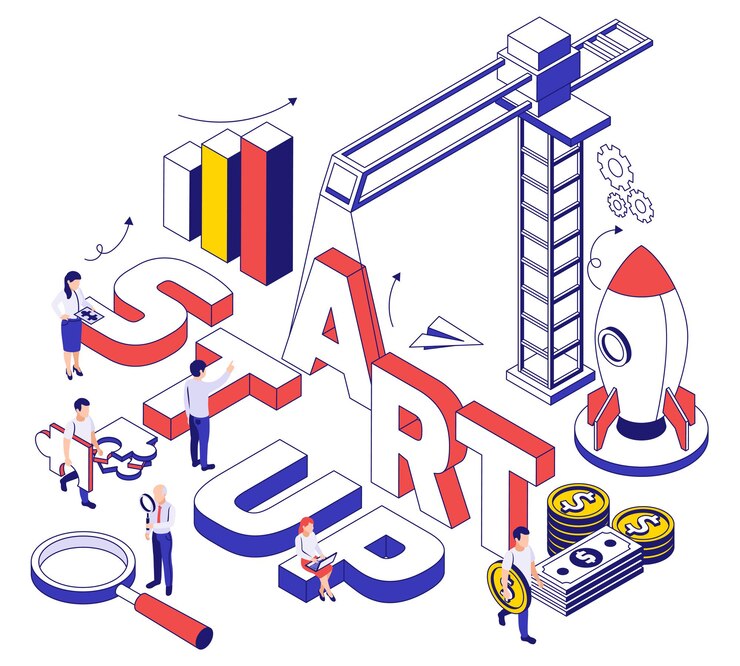The startup ecosystem in 2025 is more dynamic, inclusive, and globally connected than ever before. Driven by technological innovation, access to global capital, and a shift in workforce dynamics, startups are leading the charge in solving real-world problems with scalable solutions. As we move deeper into the decade, the landscape is being shaped by emerging technologies, sustainable business models, and a renewed focus on purpose-driven entrepreneurship.
The Global Startup Boom
The startup ecosystem has gone global. While Silicon Valley remains a powerhouse, emerging markets such as India, Southeast Asia, Africa, and Latin America have become hotbeds for innovation. These regions are home to young, tech-savvy populations and rising internet penetration, creating fertile ground for startups. Governments in these areas are actively supporting entrepreneurship through funding schemes, tax incentives, and startup-friendly policies.
In 2025, cities like Bangalore, Lagos, São Paulo, and Jakarta are competing alongside traditional tech hubs to foster innovation. The rise of remote work has also enabled entrepreneurs to build companies from anywhere in the world, eliminating geographical barriers to success.
Technology at the Core
Artificial Intelligence (AI), Machine Learning (ML), Blockchain, and IoT are no longer buzzwords—they are now integral to how startups operate and grow. AI is being used to streamline operations, predict consumer behavior, automate customer service, and enhance product development. Blockchain has transformed sectors like finance, supply chain, and digital identity, creating transparency and trust.
Startups in 2025 are built with technology as their backbone. Even non-tech founders are now leveraging low-code/no-code platforms to bring their ideas to life quickly. Access to open-source tools, cloud infrastructure, and APIs is helping early-stage startups scale faster than ever before.
Funding and Investment Trends
Funding in 2025 is both challenging and exciting. While global economic uncertainties have made investors more cautious, there’s a greater appetite for backing innovative, sustainable, and scalable business models. Venture capital remains a key source of funding, but alternative options such as equity crowdfunding, angel networks, and revenue-based financing are on the rise.
Moreover, there is a strong push toward diversity and inclusion in funding. Female founders, minority entrepreneurs, and underrepresented groups are receiving increased attention from both impact investors and government-backed funds. Startups that align with environmental, social, and governance (ESG) principles are particularly attractive to modern investors.
Sustainability and Social Impact
The startup ecosystem in 2025 is marked by a shift from pure profit to purpose and impact. Startups are addressing climate change, education, healthcare, mental health, and financial inclusion through innovative solutions. Sustainability is no longer optional—it’s a competitive advantage.
Green tech, renewable energy startups, and circular economy ventures are gaining popularity. Consumers, especially Gen Z, are more likely to support brands that are ethical, transparent, and environmentally conscious. As a result, startups are integrating social impact into their business models right from day one.
Talent and Remote Culture
One of the biggest transformations in the startup world is the way people work. The pandemic era normalized remote work, and by 2025, hybrid and fully remote models are standard. This shift allows startups to hire global talent without the need for relocation or massive office spaces.
Startups are using collaboration tools like Slack, Notion, and Zoom to maintain productivity across time zones. Culture, diversity, and mental well-being are taking center stage, with many founders realizing that a healthy team is just as important as a great product.
Challenges Facing Startups in 2025
Despite the progress, startups face several challenges:
- Regulatory Hurdles: Navigating different countries’ compliance laws, especially for fintech and healthtech startups, can be complex.
- Market Saturation: Many sectors are highly competitive, making it difficult to stand out.
- Cybersecurity Risks: As digital operations increase, so do threats. Startups must invest in strong data protection strategies.
- Economic Instability: Global inflation, political unrest, and supply chain disruptions continue to affect business operations.
Overcoming these challenges requires agility, smart leadership, and a deep understanding of market trends.
The Role of Government and Corporations
Governments are playing a proactive role in fostering entrepreneurship. Initiatives like India’s Startup India, Singapore’s Enterprise Scheme, and the EU’s Horizon Program are providing funding, mentorship, and global exposure to young startups.
At the same time, large corporations are investing in or acquiring startups to stay relevant and innovative. This symbiotic relationship helps startups gain resources and credibility while corporates access disruptive technologies and fresh talent.
What the Future Holds
As we look beyond 2025, the startup ecosystem is expected to become even more decentralized, inclusive, and resilient. Entrepreneurs will increasingly focus on solving hyper-local problems with globally scalable solutions. AI and automation will continue to transform how startups operate, while ethical entrepreneurship will become a core expectation.
Conclusion
The startup ecosystem in 2025 is a vibrant, ever-evolving environment fueled by innovation, collaboration, and a global mindset. Whether you’re a founder, investor, or enthusiast, now is the time to be part of this transformative journey. The future belongs to those who can adapt quickly, think boldly, and build with purpose.







